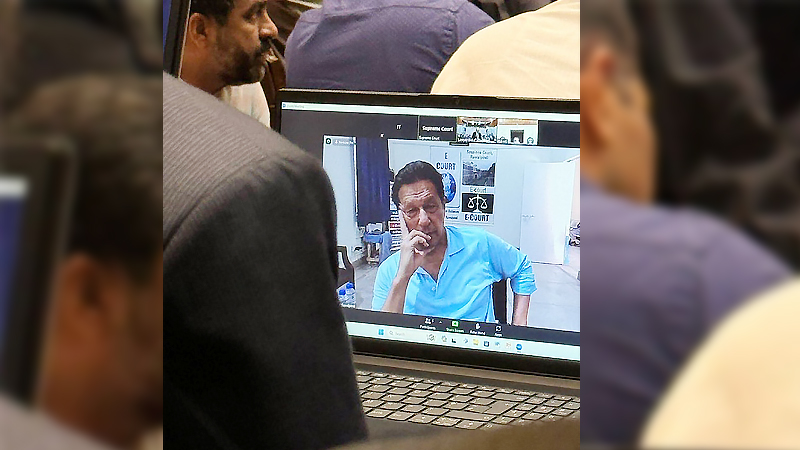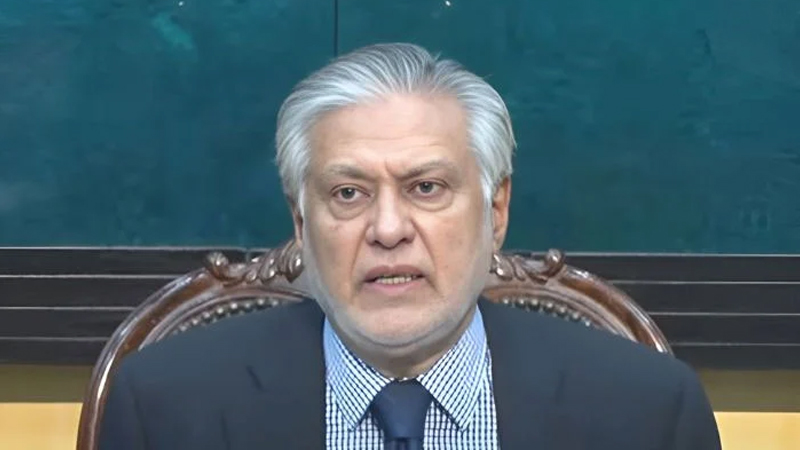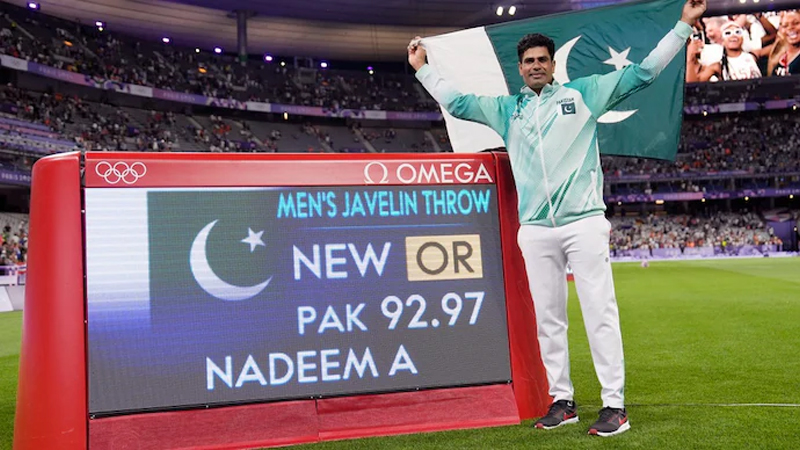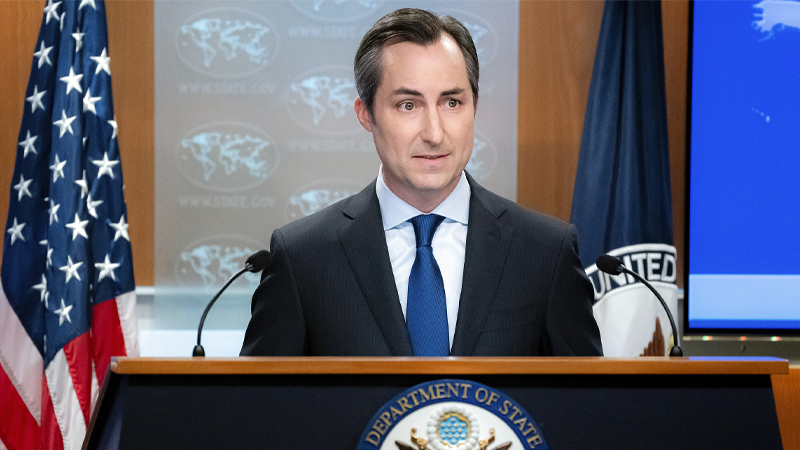In a significant development in the ongoing National Accountability Bureau (NAB) amendments case, Pakistan Tehreek e Insaf (PTI) founder and former Prime Minister Imran Khan appeared before the Supreme Court via video link on Thursday.
The hearing, presided over by a five-member larger bench of the Supreme Court, was led by Chief Justice Qazi Faez Isa and comprised Justices Amin-ud-Din Khan, Jamal Khan Mandokhail, Athar Minallah, and Hasan Azhar Rizvi.
At the heart of the matter are the intra-court appeals filed by federal and provincial governments challenging the NAB amendments that were previously struck down by the Supreme Court.
The question of whether the hearing will be broadcast live on the Supreme Court’s website and YouTube channel remains uncertain pending the bench’s decision.
Preparations for Khan’s virtual appearance were completed at Adiala Jail, where he is currently incarcerated. According to sources, arrangements were made following the Supreme Court’s directive, with a trial run of the video link conducted prior to Khan’s appearance.
Despite Khan’s desire to present arguments in person, the court permitted him to defend himself via video link. His lawyers, Khawaja Haris and Intezar Panjutha, met with him in jail ahead of the hearing.
This marks Khan’s first public appearance in nearly 10 months if the bench decides to livestream the hearing. Adiala jail authorities affirmed that Khan’s virtual presence in court would be ensured according to the apex court’s orders, emphasizing his freedom to choose whether to appear before the bench.
The case stems from the Supreme Court’s 2023 verdict that annulled certain NAB amendments. Notably, the court restored graft cases against public officials, including political heavyweights like Nawaz Sharif, Asif Ali Zardari, and Yousuf Raza Gilani, which were previously closed following the amendments.
The federal government subsequently filed an appeal against the Supreme Court’s order, setting the stage for the ongoing legal battle.
As the proceedings unfold, all eyes are on the Supreme Court’s deliberations and their potential implications for the country’s political landscape.











Leave a Reply